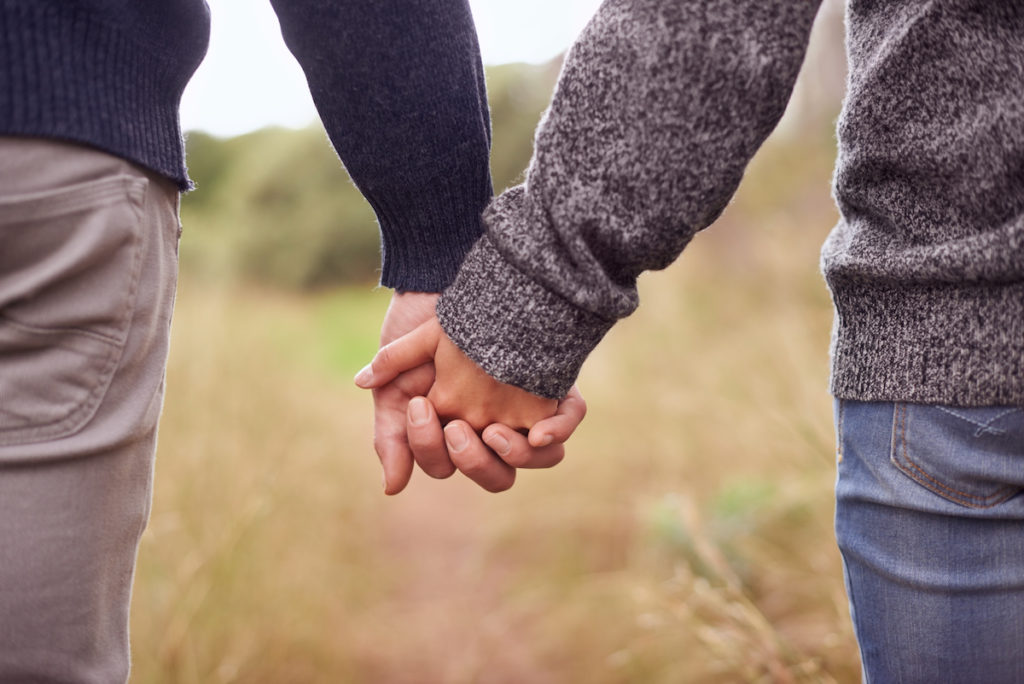We often rely on those closest to us to provide us with joy, comfort and support. It’s these meaningful relationships with our families and friends that give us a sense of understanding and community that’s essential to our overall happiness and wellbeing. Unfortunately, when addiction becomes a part of these close relationships, it can easily turn an important friendship into a toxic one. This vicious cycle is known as codependency and it frequently goes hand in hand with addiction.
What Is Codependency?
Studies have shown that when one person suffers from a substance use problem, their partner tends to also become dependent on their affected partner and their habits, even though they may not suffer from the substance dependency itself. This series of behaviors is known as codependency. [inline_cta_one] As an individual begins to depend mentally and/or physically on their relationship with a partner for their own wellbeing, they will begin to do whatever it takes to make that person happy without regard for their own personal happiness. These feelings are only heightened when substances become involved. While one person continues to struggle with addiction, their codependent partner will become obsessed with trying to help their addicted loved one by any means necessary. When codependency and addiction begin to work in tandem, the combination will lead the sober partner to make significant decisions for their addicted loved one, tell them what to do, and extremely limit their ability to act independently. The unfortunate reality is that while the codependent partner thinks they are helping, they are often causing more harm than they are doing good. Codependency in relationships will lead people to enable and perpetuate their loved one’s addiction by making excuses for their behaviors and helping those with addiction avoid the inevitable consequences of their illness. While we never want the people we love to feel pain, protecting them completely from the consequences of their behaviors will only create a downward spiral of deeper hurt and addiction.
Codependent Behaviors
Codependent relationships will look different for everyone. However, some of the most common behaviors of a person struggling with codependency are:
- A constant need for approval from a partner
- Taking full responsibility for a partner’s actions
- Obsessively thinking about a partner and their fears and anxieties
- Feelings of guilt when doing things without their partner
- Difficulty saying ‘no’ and making others unhappy
- Unable to identify personal hobbies or interest
- Frequently enabling their partner’s negative behaviors
- Low self-esteem due to feelings of shame and being inadequate
When placed up against addiction, codependency can seem like an insignificant issue. However, it shares many of the same symptoms of addiction- insecurity, denial, control and manipulation. Due to this, it’s important that those caught in the cycle of codependency realize the extent of their own illness and seek help for it as soon as possible.
Am I In A Codependent Relationship?
If you’re currently in the middle of a codependent relationship, it can be hard to see the writing on the wall. Even if you’re only exhibiting a couple of the above behaviors, take some time to consider the following questions carefully and honestly:
- Do you feel responsible for your partner’s feelings, choices, actions, wants or needs?
- Do you feel responsible for your partner’s problems?
- Do you fear voicing your concerns to your partner?
- Do you lose interest in your own life when you’re with your partner?
- Do you feel like your partner can’t function without you?
- Do you feel worthless when you don’t have a partner to take care of?
If you answered yes to any of the above questions, you may be in a codependent relationship. Instead of building a healthy relationship between two individual people, a codependent relationship pushes one person to give up their identity and rely on someone else for their own wellbeing and happiness. These unhealthy behaviors can make it extremely difficult for someone struggling with substance and their codependent partner to recover from an addiction- but recovery is possible for both parties.
How To Overcome Codependency
The first step to changing unhealthy behavioral patterns is to understand them. It is important for codependents and their family members to educate themselves on the cycle of addiction and how it interferes with their relationships. In order to do so, families should attend support groups such as Al-Anon or Nar-Anon. These resources are dedicated to helping family members of addicted loved ones during their own recovery process. While not everyone’s experience with addiction is going to be the same, chances are that many of them have also experienced trouble with codependency. Codependents Anonymous is another a support group dedicated specifically to men and women working towards building healthier relationships and serves as a resource for many looking to change their unhealthy behaviors. Change and growth will also be necessary in order to recover from a codependent relationship. Since codependency is often recognized as a learned behavior, much of treatment will consist of understanding when the pattern of codependency started and helping patients reconnect with themselves and their own personal emotions. This will require them to detach from their loved one emotions and create their own identity again. Most importantly, those struggling with codependency must learn to say no and mean it. Even if a loved one struggling with addiction chooses not to seek help, this doesn’t mean that a codependent relationship has to continue. Those struggling with codependency also deserve to find freedom from their loved one’s addiction.


